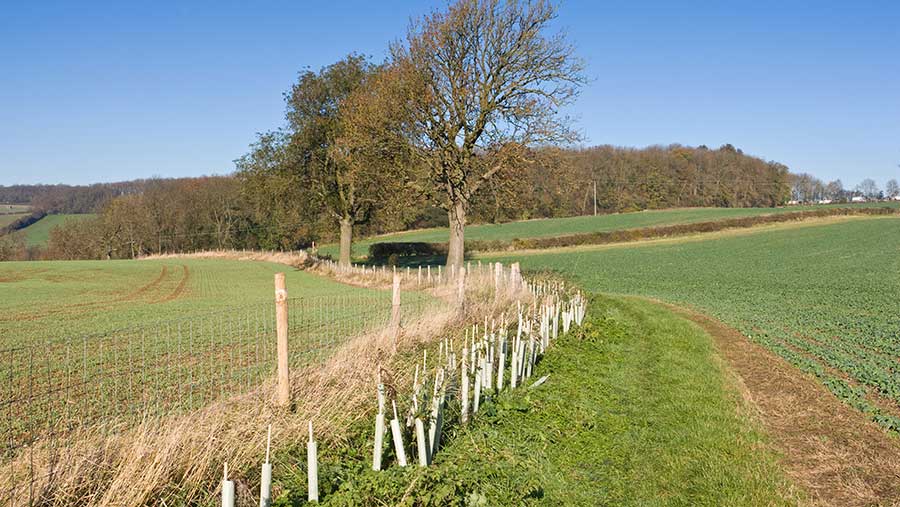Lords call for farm advisory service to help achieve net zero
 © Tim Scrivener
© Tim Scrivener A House of Lords committee is demanding a national training and advisory service to help farmers and land managers navigate the “new and complex funding landscape” of Defra’s post-Brexit agri-environment schemes.
A report (PDF) from the House of Lords Science and Technology Committee published on Thursday (27 January) also calls for policy clarity, urgent investment in research, and skills training.
Without these actions, the report warns, government plans for nature-based solutions are at “severe risk of failure”, putting net zero by 2050 at risk as well as undermining the agricultural sector.
See also: Landscape and Local Nature Recovery: What farmers need to know
The Environmental Land Management (ELM) programme for England, which is replacing the EU’s Common Agricultural Policy, will be a “central mechanism” for subsiding farmers and landowners to deliver nature-based solutions.
However, the details of these schemes have not been developed and Defra is taking an iterative approach to learning by piloting the scheme with farmer tests and trials before full delivery.
Both the NFU and the Country Land and Business Association (CLA) told peers that the absence of effective communication could lead to “mistrust, misinformation and confusion. The Public Accounts Committee has also found that a “lack of information” from Defra is causing “anxiety in the sector” and engagement has “a long way to go”.
The report says the government has acknowledged that it does not have the requisite skills to deliver nature-based solutions at scale. There has been no formal assessment of the skills needed, nor a route to providing training in the timescales required for a transition over the next decade.
‘Education is key’
Prof Chris Collins, a professor of environmental chemistry at the University of Reading, told the Lords’ enquiry: “The key thing is education for the farmers. We used to have a fantastic advisory service.
“A lot of farmers cannot afford consultants, and if we are really going to change behaviour, we need to think about a national advisory service.”
Tom Lancaster, head of land, seas and climate policy at the Royal Society for the Protection of Birds, told the committee that in the past Natural England had helped farmers to engage with agri-environment schemes.
But he added: “If you speak to most farmers, they will say they have not seen anyone from Natural England for a long time.”
The government is currently providing £10.7m of grants to 19 organisations to help farmers and land managers understand the agricultural transition through the Future Farming Resilience Fund.
During the agricultural transition, Defra says it will offer financial assistance to enable farmers to invest in their businesses to improve their productivity, manage the environment sustainably and deliver other public goods.
Government response
Defra told Farmers Weekly it was making “good progress” against its published plans. A pilot scheme involving 938 farmers for the Sustainable Farming Incentive (SFI), the first component of ELM, is under way and will be rolled out widely later this year.
Earlier this month, it published more details on how the two additional ELM schemes – Local Nature Recovery (LNR) and Landscape Recovery – will work, which includes information on when they will be rolled out and the eligibility criteria.
A Defra spokesman said: “A year into implementing our new agricultural policy, we have made great progress in our work with farmers to co-design the new system and support the choices they make for their own holdings.
“We’re moving away from the arbitrary land subsidies and top-down bureaucracy that epitomised the EU era and are incentivising farmers to farm more sustainably alongside profitable food production, creating space for nature and enhancing animal welfare.”
